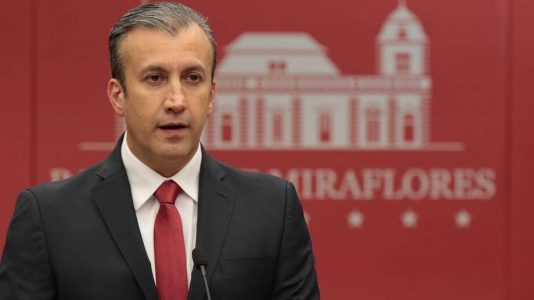
U.S. and Latin American partners to discuss the Hezbollah presence in Venezuela
The United States is concerned about the presence of Hezbollah, the terrorist group supported by Iran, in Venezuela, an issue that will be raised by Secretary of State Mike Pompeo in a meeting on counterterrorism efforts that will gather several ministers from the region in Bogota on Monday.
“We’re concerned that Maduro has extended safe harbor to a number of terrorist groups, the ELN [National Liberation Army] in particular, but also FARC [The Revolutionary Armed Forces of Colombia] dissidents who rejected the peace accord, as well as supporters and sympathizers of Hezbollah,” Ambassador Nathan Sales, Coordinator for Counterterrorism at the State Department, told el Nuevo Herald and the Miami Herald.
The last ministerial meeting was held in June last year in Buenos Aires, where Hezbollah bombed the headquarters of the Asociación Mutual Israelita Argentina in 1994, leaving 85 dead.
“The threat is still very much with us. We know that Hezbollah operatives and facilitators and finance leaders are active in the tri-border region” between Brazil, Argentina, and Paraguay, Sales said. “And we’ve seen Hezbollah presence across the hemisphere. That’s one of the reasons why the United States wanted to partner with our hemispheric colleagues… to remind them, to remind the world, that Iranian-backed terrorism is a problem here at home too.”
The United States has urged Latin American countries to take the threat seriously, and the ministerial meeting is expected to yield concrete results. Argentina and Paraguay have already sanctioned Hezbollah, while Honduras and Guatemala have expressed their willingness to do so.
Pompeo will meet in Bogotá with Juan Guaidó, Venezuelan interim president and head of the National Assembly, who defied Maduro by leaving the country to attend the ministerial meeting. He is expected to present evidence of the ties of the Maduro regime with Hezbollah, according to Carlos Paparoni, the president of the Assembly’s finance commission.
The U.S. government has sanctioned the former vice president of Venezuela and current minister of industries, Tarek El Aissami, for drug trafficking. He is suspected of having strong ties with Hezbollah.
The annual report on terrorist activities, published by the State Department in November last year, indicates that Venezuela does not cooperate fully with the United States on countering these threats, and maintains “a permissive environment for known terrorist groups.”
Amid growing tensions between the United States and Iran, the Venezuelan opposition has launched a campaign to denounce that Venezuela has become a center for financing and money laundering for Hezbollah and that Maduro has given the FARC and the ELN green light to act within Venezuelan territory.
The Colombian government had asked the Cuban government to extradite several ELN leaders who were in Havana for negotiations mediated by Cuba and Norway when an attack against a police academy in Bogotá occurred in January 2019, leaving 20 dead.
In an interview this Friday, Colombian President Iván Duque gave a warning to the Cuban government, which he has also criticized for supporting Maduro in Venezuela.
“I am not in a confrontation with the Cuban government. What I have told the Cuban government and I reiterate is, what do they want to prioritize: the relationship with the ELN or the relationship with Colombia?” Duque told a local radio station.
“The United States strongly supports Colombia’s demand for justice and extradition,” said Sales. “We call on Cuba to stop propping up the Maduro dictatorship.”
Source: Miami Herald





